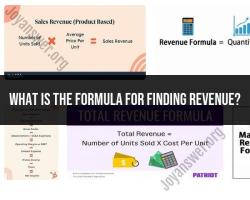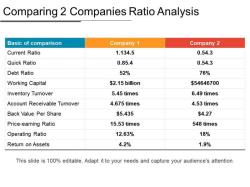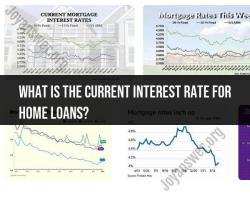Should I refinance or pay extra on my mortgage?
Deciding between refinancing your mortgage and making extra payments on your current mortgage is a financial decision that depends on your individual circumstances and financial goals. Here are some key considerations for both options:
Refinancing Your Mortgage:
Lower Interest Rate: Refinancing can be a smart move if you can secure a new mortgage with a significantly lower interest rate than your current one. A lower interest rate can lead to lower monthly payments and potentially significant long-term savings.
Reduced Monthly Payments: Refinancing can extend the loan term, which lowers your monthly mortgage payments. This can free up more of your monthly budget for other financial goals or expenses.
Cash-Out Refinance: If you have substantial home equity, you can consider a cash-out refinance to access funds for home improvements, debt consolidation, or other investments.
Consolidate Debt: Refinancing can be a way to consolidate high-interest debt, like credit card balances, into your mortgage at a lower interest rate.
Shorten Loan Term: Some homeowners refinance to a shorter loan term to build equity faster and pay off the mortgage sooner, even if it means slightly higher monthly payments.
Closing Costs: Be aware of the closing costs associated with refinancing, which can add several thousand dollars to the process. Ensure that the long-term savings from a lower interest rate justify these costs.
Paying Extra on Your Mortgage:
Interest Savings: Making extra payments on your current mortgage can save you a significant amount in interest over the life of the loan. This is especially beneficial if you have a relatively high-interest rate.
Pay Off the Mortgage Faster: By making extra payments, you can accelerate the payoff of your mortgage and potentially become debt-free sooner.
Financial Freedom: Paying off your mortgage can free up a substantial portion of your monthly budget, allowing you to redirect those funds toward other financial goals, investments, or savings.
No Closing Costs: Unlike refinancing, there are no closing costs associated with making extra payments on your current mortgage. You can apply additional funds directly to your principal balance.
Considerations:
Financial Goals: Assess your financial goals. Are you looking to reduce your monthly payment, save on interest costs, or achieve financial freedom sooner? Your goals will dictate which option aligns with your objectives.
Interest Rate: Compare your current interest rate to current market rates. If your current rate is significantly higher, refinancing might make sense. However, if you have a relatively low rate, making extra payments might be more advantageous.
Financial Situation: Consider your current financial situation. Do you have surplus funds available for extra mortgage payments, or would refinancing provide a more affordable monthly payment?
Time Horizon: Evaluate your time horizon. If you plan to stay in your home for the long term, making extra payments may be a wise choice. If you anticipate moving in a few years, refinancing to secure a lower rate might be more beneficial.
Tax Implications: Refinancing might affect the mortgage interest deduction on your income taxes, so consult with a tax advisor to understand the potential impact.
Ultimately, whether to refinance or make extra payments on your mortgage depends on your unique financial circumstances, goals, and the terms of your existing mortgage. You may also consider a combination of both strategies, such as refinancing to a lower rate and then making extra payments to pay down the principal faster. It's advisable to consult with a financial advisor or mortgage professional to assess the best course of action based on your specific situation.
Refinancing vs. Paying Extra on Your Mortgage: Financial Strategies
Refinancing and paying extra on your mortgage are two financial strategies that can help you save money on your mortgage interest. However, each strategy has its own pros and cons.
Refinancing involves getting a new mortgage with a lower interest rate or a shorter term. This can reduce your monthly mortgage payments and the total amount of interest you pay over the life of the loan. However, refinancing can also come with closing costs and other fees.
Paying extra on your mortgage principal reduces the amount of money you owe on your loan, which can help you pay off your mortgage faster and save money on interest. However, paying extra on your mortgage principal does not change your monthly mortgage payments.
Which strategy is right for you?
The best strategy for you will depend on your individual financial situation and goals. Here are some factors to consider when deciding whether to refinance or pay extra on your mortgage:
- Your current interest rate: If you have a high interest rate, refinancing to a lower interest rate can save you a significant amount of money over the life of the loan.
- Your credit score: If you have a good credit score, you may be able to qualify for a lower interest rate when you refinance.
- Your financial goals: If you want to pay off your mortgage early, paying extra on your mortgage principal is the best way to do it.
- Closing costs: Refinancing typically comes with closing costs, which can range from 2% to 5% of the loan amount. Consider how much you will save in interest over the life of the loan when deciding whether the closing costs are worth it.
Making Informed Choices About Mortgage Repayment
When making choices about mortgage repayment, it is important to consider the following factors:
- Your budget: How much can you afford to pay each month?
- Your goals: Do you want to pay off your mortgage early? Do you want to reduce your monthly payments?
- Your risk tolerance: Are you comfortable with the risk of refinancing? Are you comfortable with the risk of paying extra on your mortgage principal and not being able to access that money if you need it?
It is also important to compare different mortgage options and get quotes from multiple lenders before making a decision.
The Pros and Cons of Refinancing Your Mortgage
Pros:
- Lower monthly payments
- Lower interest rate
- Shorter loan term
- Cash out equity
Cons:
- Closing costs
- Prepayment penalties
- Risk of qualifying for a higher interest rate
- Risk of losing mortgage insurance
Impact of Extra Principal Payments on Mortgage Reduction
Making extra principal payments on your mortgage can help you pay off your mortgage faster and save money on interest. The more extra principal payments you make, the shorter your loan term will be and the less interest you will pay.
For example, if you have a 30-year mortgage with a $200,000 balance and an interest rate of 4%, you will pay $158,876 in interest over the life of the loan. However, if you make an extra $100 principal payment each month, you will pay off your mortgage in 26 years and 8 months and save $18,549 in interest.
Real Stories and Experiences in Mortgage Management
Here are a few real stories and experiences in mortgage management:
- John and Mary refinanced their mortgage to a lower interest rate and saved $200 per month on their mortgage payments.
- Jane paid extra on her mortgage principal and paid off her mortgage in 15 years instead of 30 years.
- David and Sarah refinanced their mortgage to a shorter term and saved money on interest over the life of the loan.
- Susan lost her job and was unable to make her mortgage payments. She refinanced her mortgage to a longer term and lowered her monthly payments.
It is important to note that everyone's financial situation is different. What works for one person may not work for another. It is important to talk to a financial advisor or mortgage lender to get advice on the best mortgage repayment strategy for you.












